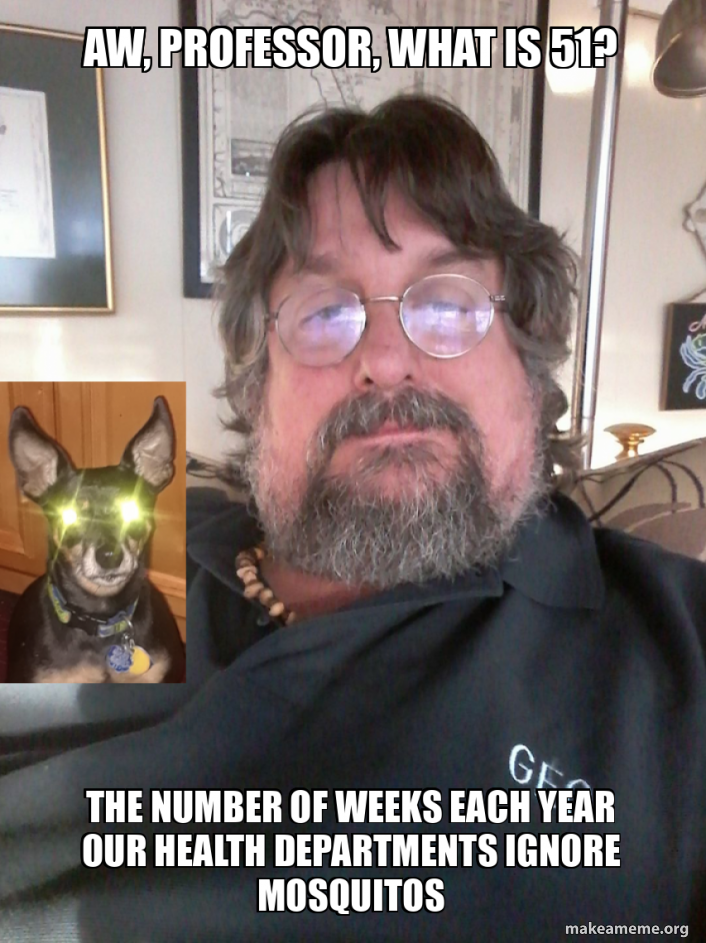Aw, Professor: Mosquitos
In honor of reactive management styles.
Mosquitos carry dread diseases worldwide, most notably diseases endemic in the tropics, such as malaria and dengue. When I travel to the tropics, I pay a lot of attention to those diseases and the critters that carry them.
Where I live in southern New England, we pay attention to mosquitos only when a case of Eastern Equine Encephalitis is diagnosed -- EEE or Triple-E. Then we go from zero to overkill in a matter of days. Parks are closed and aerial bombardment of our towns commences.
Boards of health try to communicate both that the sprays are safe and that we should stay indoors when they are being sprayed. Hmmm.
They also encourage what Brazilians call "meia e meia" practices, which means staying indoors at dusk and dawn. The Portuguese phrase literally means "half and half" or "six and six" because in the Amazon, mosquitos are most active at those hours, and Brazilian Portuguese refers to six on the clock as meia, for half-dozen. Some towns go as far as closing parks.
This reactive management provides -- AT BEST -- some short-term relief from the threat. Proactive management would involve improved practices on public lands and education to promote better practices on private lands.
I was in south Texas at a time when dengue was making inroads, and we knew not to leave standing water for more than 3 days. I never hear messaging about that here in Massachusetts. More importantly, we need to promote insect biodiversity by planting more diverse local flowering plants. Dragonflies are beautiful AND they always have the munchies for mosquitos. Bats are even more important, and they thrive in shagbark hickory trees and in bat boxes, like the one in our backyard.
I think irony is the right word for the fact that this unfolds every couple of years in the area where Rachel Carson first turned her attention to the problem of pesticide dependency.. Her work on Silent Spring began after a resident of Marshfield -- on the South Shore of Massachusetts -- wrote to her about the collapse of bird populations that had followed widespread use of DDT. She went on to write about the problems related to that class of pesticides, eventually leading to their restriction in the United States.
Some of those lessons, however, are applicable to other pesticides. Their overuse tends to knock down the population of beneficial insects while building resistance in the target insects. Intensive, episodic spraying is not effective over time. Integrated pest management (IPM) might employ some limited sparying -- even Rachel Carson herself did not always oppose this. But aerial spraying just sets us up for repeating cycles.
It is also a serious threat to the organic farmers of our region. Organic practices are both important for environmental and human health AND part of a business model that allows small farms to survive economically. Aerial spraying programs have some provisions to avoid these farms, but they are not fully implemented, and honest farmers have to sell some produce as non-organic at a lower price as a result.
This is probably the longest post on this Aw, Professor blog, but it is just the tip of the proverbial iceberg. Please see all of the Silent Spring posts on my Environmental Geography blog for much more on the science behind my outrage on this topic.




Comments
Post a Comment